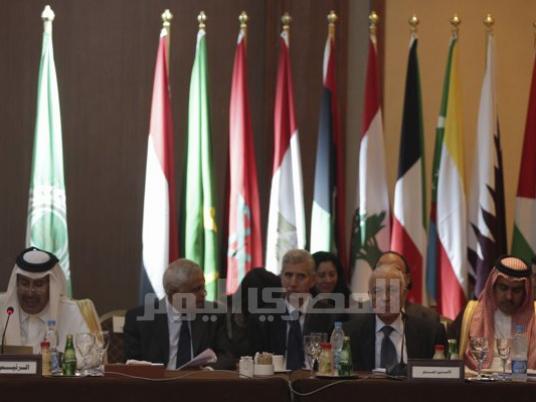
An initiative calling for a joint UN-Arab League peacekeeping mission to Syria is likely to fail but raises the stakes and further isolates the embattled regime in Damascus, analysts said on Monday.
"I think the political significance of the Arab League move is enormous," said Rami Khouri, head of the Issam Fares Institute at the American University of Beirut. "The practical consequences of it will take a lot longer to manifest themselves."
"The important thing is the Arab League is now trying to hook up with the legitimacy of the United Nations and all the countries trying to bring about peaceful political change in Syria."
The pan-Arab bloc at the weekend severed all diplomatic and economic cooperation with the regime of Bashar al-Assad and called on the United Nations to send a joint peacekeeping force to Syria.
Russia said on Monday that it was studying the plan but that a ceasefire had to be implemented before any peacekeepers could be deployed.
The Arab League initiative marked the latest diplomatic effort to end 11 months of bloodshed in Syria that, according to activists, has left more than 6,000 people dead.
Analysts said that a new Arab League resolution was likely to meet the same fate as previous texts put before the UN Security Council and rejected by Russia and China, both staunch allies of the Assad regime.
They also pointed out that any decision to send peacekeeping troops to Syria requires approval by Damascus as well as a ceasefire, both of them unlikely scenarios.
"It's contradictory for the Arab League to call for the UN peacekeeping force, which requires the approval of the host government, while at the same time calling for an end to diplomatic cooperation with Syria," said Yezid Sayigh, an analyst with the Carnegie Middle East Centre in Beirut.
"This call sadly raises the political pressure but it may have a counter-productive effect of underlining even more that the league of Arab states has run out of real options that are game changers," he added.
Salman Shaikh, head of the Brookings Doha Centre, said that few countries would be willing to contribute any troops even in the unlikely event the Security Council reached consensus on the resolution.
"I find it very difficult that we will find member states who will actually contribute UN troops to something like this," he told AFP.




